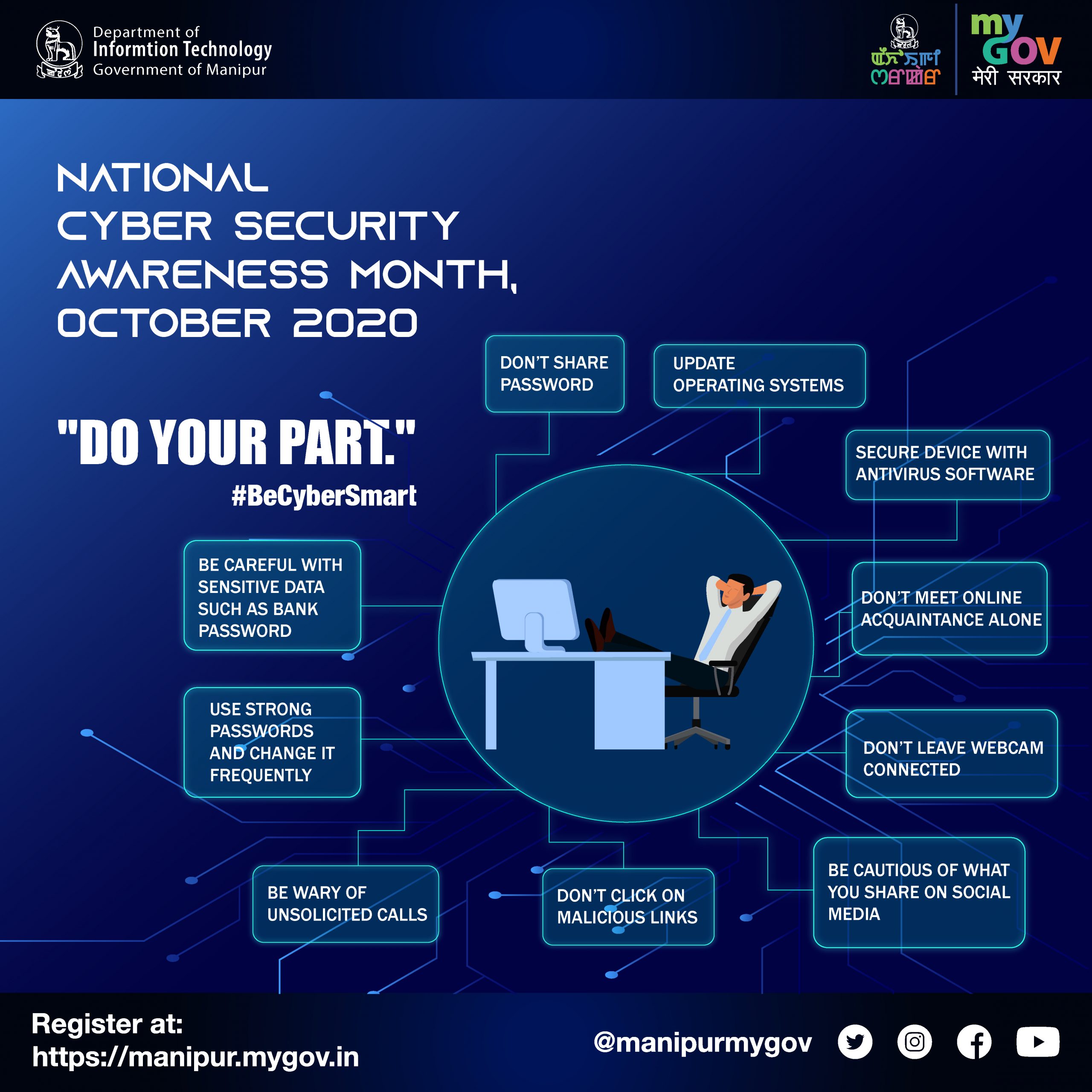Types of Cyber Crimes and How to Stay Protected

Cybercrime is a criminal activity that either targets or uses a computer, a computer network or a networked device.Some cybercriminals are organized, use advanced techniques and are highly technically skilled. Others are novice hackers.Cybersecurity is the state of being safe from electronic crime/cybercrime. It refers to the body of technologies, processes, and practices designed to protect networks, devices, programs, and data from attack, damage, or unauthorized access.
There are various cybercrimes we face in our day to day life and below are some cybercrimes to name a few: –
Social engineering attack: -In a social engineering attack, an attacker uses human interaction (social skills) to obtain or compromise information about an organization or its computer systems. An attacker may seem unassuming and respectable, possibly claiming to be a new employee, repair person, or researcher and even offering credentials to support that identity. However, by asking questions, he or she may be able to piece together enough information to infiltrate an organization’s network.
Phishing attack: -Phishing attacks use email or malicious websites to solicit personal information by posing as a trustworthy organization. For example, an attacker may send email seemingly from a reputable credit card company or financial institution that requests account information, often suggesting that there is a problem. When users respond with the requested information, attackers can use it to gain access to the accounts.
Vishing attack: –Vishing is a social engineering attack that attempts to trick victims into giving up sensitive information over the phone. In most cases, the attacker strategically manipulates human emotions, such as fear, sympathy, and greed in order to accomplish their goals.
To state an instance for this we might get a call stating that there’s some issue with our credit card and we need to update certain information else we will not be able to us it.In the process they will ask our card details and we will land up losing our money.
Smishing attack: – Smishing is a form of social engineering that exploits SMS, or text, messages. Text messages can contain links to such things as webpages, email addresses or phone numbers that when clicked may automatically open a browser window or email message or dial a number. This integration of email, voice, text message, and web browser functionality increase the likelihood that users will fall victim to engineered malicious activity.
Cyber Crime Against Women and Children: –In the current scenario cyber crime against women and children is becoming a serious and major issue. An unfortunate number of women are becoming victims of cybercrimes. According to a recent study more women are known to use the Internet to enrich their relationships compared to men. Young women, those 18-24, experience certain severe types of harassment at disproportionately high levels.
Like young girls might get certain messages from some person trying to build an online relationship and tricks or pressures him/ her into doing sexual act.Also, they may even try to gain full confidence and also might even send gifts and money too. And as time passesby, they might pretend to have stuck up in a situation and will need money and will try saying that the bank is on strike or close and will try asking help in the form of cash promising to return as soon as the bank opens.
We even see someone publishes defamatory matter about someone on a website or sends e-mails containing defamatory information to all of that person’s friends or relatives. It is mostly committed by hacking someone’s id on Face Book, Google, or any other social networking or mailing website. It is also done by creating fake profile of a person containing all personal information about that person, which resembles to be a genuine one to others on any website
Editing of the original picture by unauthorized user or fake identity is termed as Morphing. It was identified that female’s pictures are downloaded by fake users and again re-posted/uploaded on.
Below are certain preventive measures that can be taken up from becoming a cybercrime victim: –

Don’t share passwords: – This is one thumb rule which one should always follow and never share your password with anyone.
Update all operating systems on your devices: – They can be nuisance. But they are very important to keep you safe. Security updates and patches keep the latest threats away. Always install them no matter how busy you are.
Secure your devices with anti-virus software: – Having a mobile phone or a tablet without a security system in place is like sitting in a house with the doors unlocked. Both android and mac devices are at risk from malicious software invading and taking over your life. Always install a reliable security system in all your devices.
Safe use of Internet/Mobile Banking: –Develop a habit of never to store your account information, such as the account number, debit and credit card PINs, on your mobile handset. If you use a banking app but be careful when downloading apps because they can bring in malware.Never store your user name and password on your mobile handset for automatic login.Always prefer to use banking app rather than browser in order to prevent from hacking your password for internet banking.
There is no such thing as ‘freebies’: – Freebies come as games, offers, deals, etc. They may be riddled with viruses, spyware and malicious software. These can get into your device and mine all your data.
Don’t click on malicious links: – Got a mail inviting you to click on your bank’s website? Don’t fall for it because it could be a fake website designed to mimic your bank’s official site. Never follow a banking link sent to you in a text message or e-mail. Always navigate to a web site directly, i.e., type the link into your browser, or enter your bank’s web address into your phone and bookmark it. A secure web sites URL should begin with “https” and not “http”. The “s” stands for secure.
Be wary of unsolicited calls: -Be careful when you return a missed call from an unknown number. These could be potentially unwanted and costly schemes, spam and scam voice and text messages. You could be charged premium rates for these calls. The bigger danger is that your phone data might be transferred during the call.
Don’t share more than necessary: -Relationships have only two shades in a spectrum – very good or very bad. Even the best of people can swing from one end of the spectrum to the other. That is why use caution when you share intimate messages, pictures, information or anything that has the potential to come back and embarrass you.
Reveal only as much as needed: – There are too many sinister characters browsing social media sites to initiate friendship with unsuspecting women. Be careful about posting details about your whereabouts and lifestyle. Stalkers can find ways to reach you with a simple photograph or status update. Disable geo tagging in your camera. Enable it only when required. Any device with an enabled ‘location service’ poses the risk of exposing your exact location at any given time.
Don’t leave your webcam connected: – There are too many apps capable of turning on your camera and slyly recording your movements without your knowledge. As a precaution disable camera permission and keep the lens of your camera closed or covered when not in use.
Don’t meet online acquaintances alone: – Always let your friends and family know where you are going and who you are meeting. Make sure you meet the person in a crowded coffee shop or mall.





